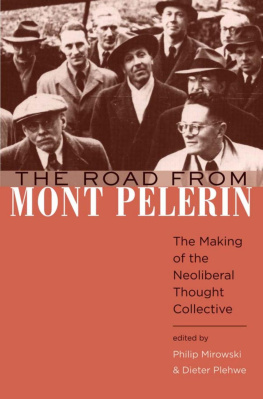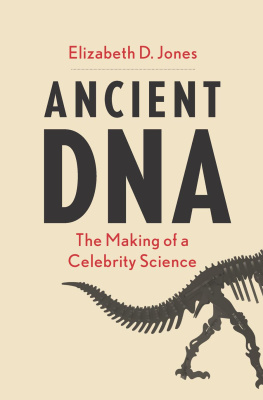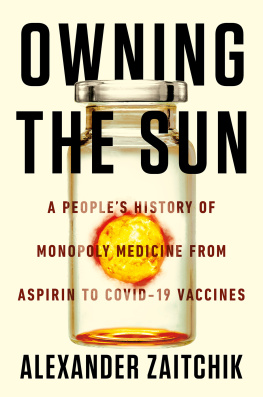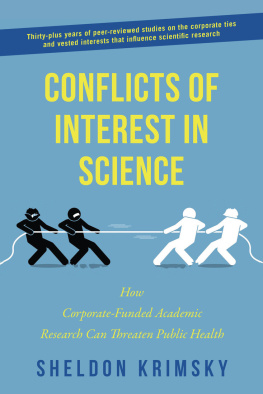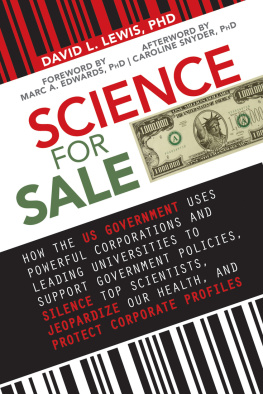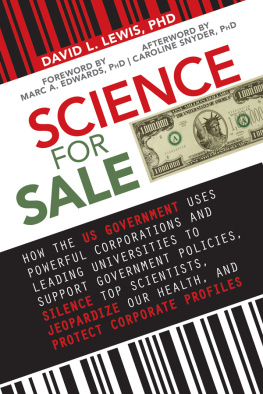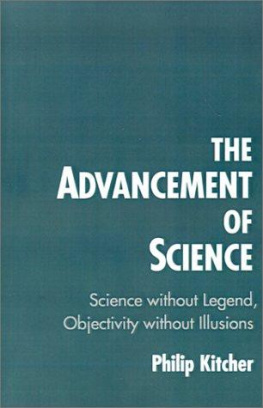Privatizing American Science
PHILIP MIROWSKI


IWhy We Should Not Depend Upon the Existing Content of an "Economics of Science"
IIA Modern Economic History of Science Organization
IIIWhere We Are Headed
Or, Adventures in Neoliberal Science Studies
Meet Viridiana Jones
It's not easy making a living in the knowledge biz these days. Lately our heroine, the intrepid academic researcher Viridiana Jones, feels strung out between the Scylla of Disneyfication of higher education and the Charybdis of Free EnronPrise in securing a patron, any patron, to support her inquiries in an era of impending financial doom. Viridiana finds herself sometimes wistfully wondering what life might have been like if she had gone and gotten that law degree instead. She considers herself someone who keeps up with current events, but the news about her university these days just brings on a headache. Every visit to the department mailbox has turned into another occasion for heartburn. Viridiana used to enjoy reading the Chronicle of Higher Education, but now she just tosses it out. She sees a colleague's copy of the Wall Street journal with the headline "Basic Research Loses Some Allure" (Clark and Rhoads 2009): too right, mate, she groans. The other day, she received a glossy flyer that said, "As a University of Phoenix instructor, you could be sharing your knowledge and skills with motivated adult students via the Internet. Because our web-based format is asynchronous, you can teach class at times and places that fit your schedule-without interrupting your full-time career."i Just prior to that, she got a missive from a publishing company threatening her with prosecution if she didn't remove one of her own journal articles from her local university Web page (Corbyn 2009). The memos from the administration at her home campus have hardly been more edifying. For instance, she cannot believe that someone would voluntarily want the Ken Lay Chair for the Study of Markets or accept Madoff grants for health research (Bernstein 2009), but in her sober moments she knows she can't revel in her own moral superiority. As for all those juvenile pipe dreams of serving mankind and speaking truth to power-well, the less said about them, the better.
Of late, Viridiana feels like a character trapped in a George Saunders short story. It's hard not to notice the theme park character of the modern university campus: intellectual crowd control at the intake gates, carny barkers flogging customized "majors," t-shirt and souvenir vendors, internship thrill rides promising accelerated plunges into employment, long queues for the most popular son et lumiere entertainers, sports extravaganzas, science lite served up in postmodern special effects pavilions pitched toward crowds jaded by video games, package tours through the Tunnel of Love mislabeled as study semesters abroad, dorm/hotel package deals, binge drinking, outsourced functions to low-wage contractors, and academic convocations as choreographed as any performance in Tomorrowland. Sometimes Viridiana wonders for whom or for what her university really exists. But then a thought brings her up short: Is she beginning to sound like some creepy curmudgeon from another planet? Or maybe Marshall Sahlins (2009)? She looks at herself in the mirror and winces. So what if you have to coddle the customer a little? And anyway, who really cares about such wintertime discontents when there's an economic crisis brewing?
It has been commonplace in certain circles to bemoan the troubled relationship of science to the state, and by this, Viridiana doesn't mean the isolated hot-button issue of stem-cell research (not her field), but rather the demonstrated willingness by state organs to participate more directly in defining what would count as "high-quality research."2 Of course, when the time comes to gather up the fruits of the projects they have funded, the patron of research has always enjoyed the option to take it or leave it; what seems different of late is that there exists a whole parallel universe of think tanks and shadowy "experts" having little to do with the kind of academic science Viridiana had been acclimatized to expect in her youth. The state has apparently become much more willing to dispense with internal peer quality controls, hastening to intervene in the early stages of dissemination of results, purchasing their preferred party line neatly packaged from some think tank, suppress or otherwise discourage that which is inconvenient or strays offmessage, while cherry-picking whatever seems expedient to tout as proven knowledge. Whenever the truth is inconvenient, science patrons now seem inclined to shoot the messenger. Viridiana recalls reading a front-page article in the New York Times about NASA trying to silence one of its own on global warming; there are a thousand smaller acts of overt censorship that never make it into the newspapers, including one she has witnessed herself at her home institution.'
You could blame it all on the nanny state, but Viridiana has to suppress the darker misgiving that her own peers in the world of science aren't much better. She knows that money has always been needed to make science, but whoever anticipated that her colleagues would come to take it as axiomatic that science was just another way to make money? She picks up American Scientist off the department coffee table and flips to an article that suggests that the glitzy new way to fund science and garner public support is to have scientists float their research proposals on something like a stock exchange, with the affluent public placing bets on the kinds of theories they have gut instincts will pan out in the future (Schneider 2008). At first she suspects it must be a joke, but it is not April 1; then she sees Google was one of the sponsors pushing the idea. Who else? After all, isn't their mantra "Nobody is as smart as everybody?" (Shapin 2008b, 194).
Viridiana has always known in her bones that the pursuit of knowledge is wayward and easily deflected, potentially suffering all kinds of deformations and biases because of the way it is prosecuted, framed, generated, and conveyed. Those concerns have long been the province of academic disciplinary scrutiny, from philosophy to psychology to sociology of knowledge. Sometimes, over in the philosophy department, epistemology seems to have been discussed as if it were merely a matter of isolated solipsistic individuals hewing doggedly to the rules of deductive and inductive inference; yet a closer look always reveals that the "social" context has continually been situated at the core of many supposedly abstract epistemological disputes.4 Indeed, the proper relationship of science to the state was sometimes deemed to be the most significant problem in coming to understand the conditions under which science could make progress. But Viridiana is loath to admit that she doesn't know or much care about all that, or indeed about politics in general. Of course she votes for Democrats in American elections and considers herself a liberal in the awkward American sense, calls herself a feminist, and used to ridicule George Bush the Lesser along with the rest of her colleagues, but the truth is she has never thought very long or hard about the implications of cultural, religious, or economic movements for her science, her university, or her future. She once heard a friend say that science should be more democratic, but she hasn't a clue what that would entail. Curiously for one so intelligent, she more or less subscribes to the sound bite that a conservative is a troglodyte who grunts: government bad, market good. Yet, it must be admitted, the New York Times has hardly been superior in that regard, in her experience.



